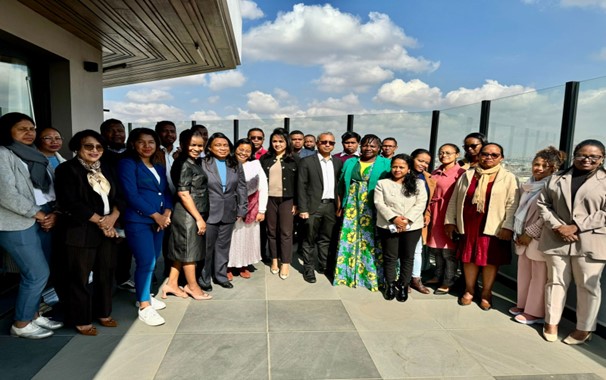
Antananarivo, July 26, 2024: Gender statistics are crucial for informed decision-making. They highlight areas where gender disparities exist, ensuring that policies and programs effectively address the needs of men, women, boys, and girls for inclusive social and economic development.
In a novel initiative to enhance the collection, analysis, and use of gender-disaggregated data, the COMESA Secretariat, in collaboration with the Investment Climate Reform (ICR) Facility, organized a training workshop on gender-disaggregated data and statistics for Madagascar on 24 – 26 July 2024.
This workshop aimed to equip statisticians, researchers, and policymakers with the necessary skills and tools to better understand and address gender disparities across various sectors.
This initiative aligns with the COMESA Gender Policy, African Minimum Gender Indicators, and the United Nations Sustainable Development Goals, particularly Goal 5: Achieve gender equality and empower all women and girls.
By strengthening the capacity to produce and use gender statistics, Madagascar will move closer to achieving regional, continental and global targets on gender equality and empowerment of all women and girls.
Speaking at the forum, Mr. Rakotonaradany Michael, Acting Director General of the National Statistical Institution of Madagascar, emphasized the transformative power of data.
“By enhancing our capacity to collect and analyze gender statistics, we can create more equitable and effective policies that benefit everyone in society. The importance of gender statistics cannot be overstated,” he stressed.
He added, “The limited availability of gender data and statistics makes it challenging to monitor and evaluate progress towards achieving targets and goals related to gender equality and women’s empowerment.”
Mrs. Beatrice Hamusonde, Director of Gender and Social Affairs at COMESA, highlighted the significance of the workshop, towards building a more inclusive and equitable society.
Participants were taken through various key topics including an introduction to gender and gender statistics to enhance understanding of the basics and importance of gender-disaggregated data.
Other topics were data collection techniques and best practices for collecting reliable and accurate gender data; data analysis and interpretation featuring tools and methods for analysing gender statistics and policy implications of using gender data and gender statistics to inform and shape policies and programmes.
This joint initiative by COMESA and the ICR Facility underlines their commitment to promote gender equality and empower institutions and individuals through capacity-building initiatives by providing the tools, knowledge and evidence-based research necessary to address critical gender issues.
The ICR Facility is co-funded by the European Union (EU), the Organization of African, Caribbean and Pacific States (OACPS) under the 11th European Development Fund (EDF), together with the German Federal Ministry for Economic Cooperation and Development (BMZ) and the British Council. It is implemented by GIZ, the British Council, Expertise France, and SNV.
#GenderEquality #SustainableDevelopment #GenderStatistics #COMESA #Empowerment #TrainingWorkshops #ICRFacility

